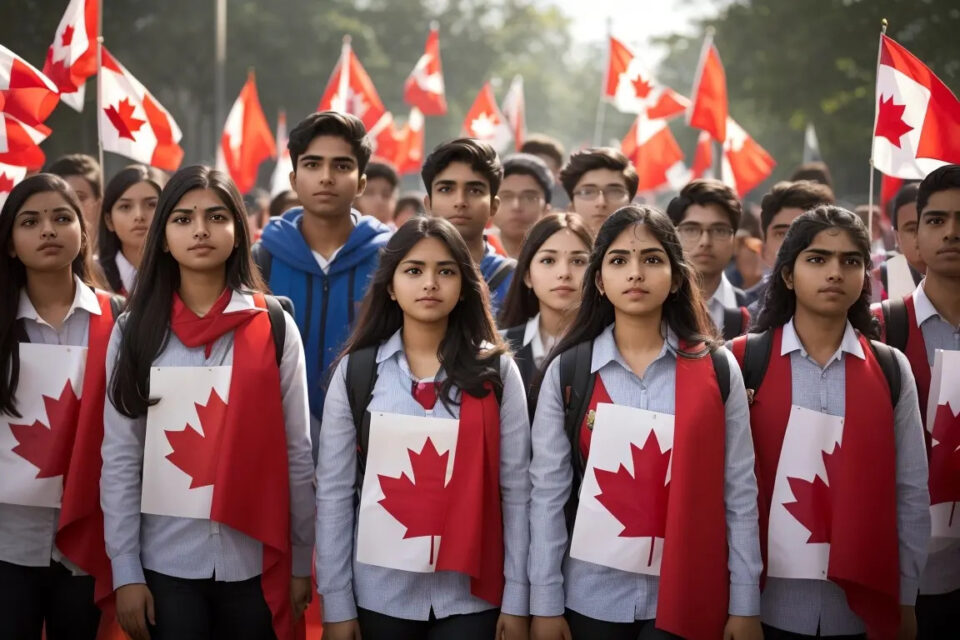As tensions rise between India and Canada due to a diplomatic crisis, Canadian colleges and universities are stepping up to ensure the safety and well-being of their Indian students. With India being the largest source of international students in Canada, educational institutions are scrambling to provide resources and communicate effectively to address concerns regarding the future of their studies.
The diplomatic crisis stems from Canadian Prime Minister Justin Trudeau’s recent accusation against the Indian government for their alleged involvement in the killing of an Indian separatist leader within Canada. This sparked outrage among Indian officials, leading to concerns about the possible impact on higher education partnerships between both countries.
Despite these tensions, Canadian academic institutions are actively working to ensure continuity and support for their valued Indian student population. According to reports from Reuters news agency, universities and professionals from both countries have engaged in measures aimed at alleviating students’ concerns or fears.
One case is the University of Toronto, which has over 2,400 worldwide students from India enlisted in its 2022-2023 academic year. Joseph Wong, Vice President of the University of Toronto, expressed that they have been in contact with different partners in India to reaffirm their commitment to proceeded cooperation.
International education has not only changed the lives of countless students, but also life in India. Facilitating trade between home and host countries. With its excellent academic institutions and diverse opportunities, Canada has become a top destination for international students, especially those hailing from India. This flourishing educational exchange has had positive effects in various sectors of the Canadian economy and helped cultivate vital cultural ties between the two nations.
More Info:
However, the brewing diplomatic tensions between India and Canada have generated apprehension among prospective Indian students and their families, who view higher education in Canada as a stepping stone towards a better future. For stakeholders such as Jiwan Sharma, these recent developments pose significant challenges as they’ve poured substantial financial investment into pursuing educational prospects abroad.
Despite ongoing strife surrounding diplomatic disputes, it is imperative that both governments acknowledge the importance of maintaining strong educational ties between the two nations. In doing so, they must work collaboratively to reach resolutions that safeguard students’ futures while prioritizing bilateral relations.
In light of these concerns, Canadian Foreign Minister Melanie Joly has called for private talks with India to mitigate rising tensions and secure a constructive relationship that benefits both nations. Not only would such negotiations foster goodwill but also restore much-needed stability for international students caught in political crossfire.
Navigating political complexities can prove challenging; however, it is essential to recognize the critical role that international education plays in bridging cultural gaps, strengthening economies and promoting global understanding. By seeking timely resolutions to diplomatic disputes, both India and Canada can continue nurturing a mutually beneficial relationship while safeguarding their citizens’ aspirations for quality education on a global stage.
Indian students planning to study in Canada need to be aware of the potential visa delays due to the ongoing political tensions between the countries. University representatives attending the education fair in Hyderabad have advised students to consider planning their academic session for the fall/autumn term, starting in August 2024. As universities weigh their options and assess the situation, they have also recommended that students remain patient and flexible when making their travel plans.
Conclusion
Although the current situation is difficult, the ultimate goal of Canadian universities is to help future Indian students obtain a successful education without being hindered by visa-related issues. It is also important for students and their families to remember that political issues should not affect their long-term education because Canada is still focused on higher education.
By maintaining open communication during this uncertain time, universities and students can work together to find solutions and navigate through these complexities, ensuring a smooth path towards educational success.
If you have any questions, please feel free to get in touch with us using our contact form or via email, we will try our best to reply promptly with an answer to your query.
Disclaimer: This article is for informational purposes only, exclusively written and published by IntraSource. The published information is sourced from various trusted platforms, such as news agencies and online media, mainly the Government of Canada and Canadian online media/websites, and should not be considered as legal or professional advice. IRCC’s requirements may change, so consult a lawyer/s and receive professional advice before making decisions or applications.


